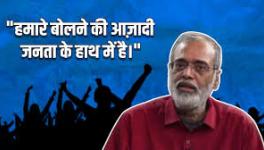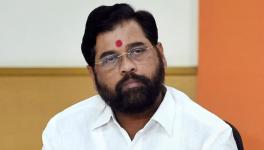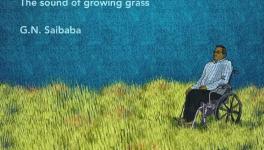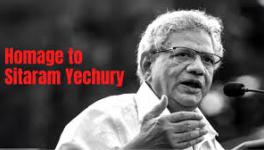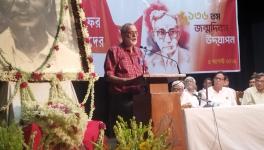Undermining of India’s Democratic Traditions ‘Alarming’, Say Scholars, Writers, Including Amartya Sen
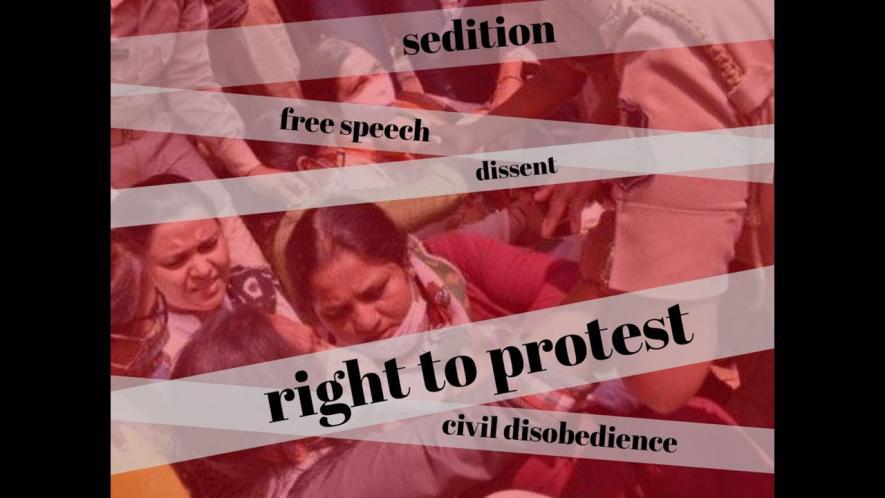
New Delhi: Several scholars, academics, writers abroad have expressed deep concern over the ‘undermining” of democratic traditions in the country, drawing the world’s attention to the “prolonged incarceration without trial of a large number of writers, journalists and social activists, often without so much as a charge-sheet against them.”
“This amounts to undermining the Constitution and overturning the structures of democracy,” read an open letter.
The statement, including a separate one by Nobel laureate Amartya Sen, cites the example of Newsclick editor—in chief Prabir Purkayastha, 75, activists charged in the Bhima Koregaon case, the Delhi communal violence case among others.
“This extended incarceration without trial has been given legislative backing, through an amendment to the Unlawful Activities Prevention Act passed by the Indian parliament. But legislative backing provides no justification for such incarceration,” said the statement signed by writer Amitava Ghosh, Wendy Brown, Gayatri Chakravarty Spivak, Amartya Sen, Martha C. Nussbaum, among others.
“India has long been admired internationally as an exemplary democracy, and the largest in the world. Any abridgement of democracy in India is tragic, not only for the people of India, but for all of humanity. We write this letter to alert international opinion to these recent alarming developments in that country and to urge those holding positions of responsibility in the various organs of the Indian state, in particular the judiciary, to ensure that the abridgements we are currently witnessing are reversed, and that no encroachment occurs on the fundamental rights of its citizens,” reads the letter.
Read the full statement below:
A STATEMENT ON THE UNDERMINING OF
ELEMENTARY FREEDOMS IN INDIA
We, the signatories to this statement, write with the greatest of concern because we admire the democratic structures that India embraced since gaining Independence from colonial rule, including a set of Constitutionally-guaranteed fundamental rights for every citizen. This entire democratic tradition is being fundamentally undermined by some recent developments in that country. We write at this particular moment to draw the world’s attention to how this is being done by the prolonged incarceration without trial of a large number of writers, journalists and social activists, often without so much as a charge-sheet against them. All that these individuals have done is to criticize the present government in India.
Prabir Purkayastha, a 75-year old senior journalist, author, and founding editor of the independent news portal Newsclick, whose office and home were repeatedly searched for weeks on end for incriminating evidence without any being found, has been arrested and, despite being imprisoned for nearly six months, is yet to be served a charge-sheet; the harmful effects of such an action on media independence are obvious for everyone to see.
Others have been incarcerated even longer, such as those arrested in the Bheema-Koregaon case who (with the exception of those whom the courts have released on bail on medical or technical-legal grounds) have been languishing in prison for over five years without any trial.
Likewise, many accused in the Delhi riots case have been in prison for over three years without any trial –and often without complete charge sheets brought against them; some, who have been charged, but with no trial in sight, have spent even longer in jail than the maximum legal sentence warranted by the charges against them.
This extended incarceration without trial has been given legislative backing, through an amendment to the Unlawful Activities Prevention Act passed by the Indian parliament. But legislative backing provides no justification for such incarceration. Indeed, to use it as a justification amounts to saying that Constitutionally-guaranteed fundamental rights can be abrogated through a legislative majority; that, notwithstanding Constitutional provisions, someone can be imprisoned for any length of time by a government enjoying a legislative majority. This amounts to undermining the Constitution and overturning the structures of democracy.
India has long been admired internationally as an exemplary democracy, and the largest in the world . Any abridgement of democracy in India is tragic, not only for the people of India, but for all of humanity. We write this letter to alert international opinion to these recent alarming developments in that country and to urge those holding positions of responsibility in the various organs of the Indian state, in particular the judiciary, to ensure that the abridgements we are currently witnessing are reversed, and that no encroachment occurs on the fundamental rights of its citizens. Those holding such positions of responsibility will be remembered by posterity if they honourably stand up for Indian democracy.
Signed:
1.Amitav Ghosh, Novelist and Author, New York.
2.Wendy Brown, UPS Foundation Professor, Institute for Advanced Studies, Princeton.
3. Judith Butler, Maxine Elliot Professor, Department of Comparative Literature, and the Program of Critical Theory, University of California, Berkeley.
4.Gayatri Chakravorty Spivak, University Professor, Columbia University, New York.
5.Sheldon Pollock, Arvind Raghunathan Professor Emeritus of South Asian Studies, Columbia University, New York.
6.Martha C. Nussbaum, Distinguished Service Professor of Law and Philosophy, University of Chicago, Chicago.
7.Steven Lukes, Professor of Politics and Sociology, New York University, New York.
8.David Bromwich, Sterling Professor of English, Yale University, New Haven.
9. Marjorie Cohn, Professor, Thomas Jefferson School of Law, San Diego; former president, National Lawyers Guild, U.S.A.
10. Jonathan Cole, John Mitchell Mason Professor,
Provost & Dean of Faculties (1989-2003),
Columbia University, New York.
11. Janet Gyatso, Hershey Professor of Buddhist Studies and Associate Dean for Faculty and Academic Affairs, Divinity School, Harvard University, Cambridge.
12. Carol Rovane, Violin Family Professor of Philosophy, Columbia University, New York.
13. Jan Werner-Muller, Roger Williams Straus Professor of Social Sciences, Princeton University, Princeton.
14. Charles Taylor, Emeritus Chichele Professor of Social and Political Theory, Oxford University; and Emeritus Professor of Philosophy at University of Montreal.
15.Akeel Bilgrami, Sidney Morgenbesser Professor of Philosophy; Professor, Committee on Global Thought,
Columbia University, New York.
16. David Shulman, Renee Lang Professor of Humanistic Studies, Hebrew University, Jerusalem.
Statement by Amartya Sen
Some friends of mine have recently written a cogent statement on the violation of elementary freedoms in contemporary India, and, even though I do not, as a rule, sign joint letters, I would like to add my voice to theirs. So this is written as a general statement addressed to my fellow citizens.
Under British rule, Indians were often arrested and imprisoned without trial, and some were kept in prison for a long time. (As many of my family members were trying hard to free India from colonial rule, several of them experienced this kind of treatment of imprisonment without trial.) As a young man, I had hoped that as India became independent, this unjust system, in use in colonial India, would stop. This has not, alas, happened, and the unsupportable practice of arresting and keeping accused human beings in prison without trying them has continued in free and democratic India.
Along with others who are rightly outraged by this injustice, I must also strongly express my sense of indignation at this basic violation of human freedom in my own country, whose claim to being a democracy is strongly negated by such practice.
There are, of course, many other unjust uses of compelling law that continue in India, despite our hope of building a fairly governed country, but imprisonment without trial and without fairness in the treatment of human beings is certainly among the worst injustices that the country has made into a regular arrangement. We should very much hope that the judicial system of India will have the good sense to eliminate barbarities of this kind.
Amartya Sen
Thomas W. Lamont University Professor, and Professor of Economics and Philosophy, Harvard University, Cambridge.
Get the latest reports & analysis with people's perspective on Protests, movements & deep analytical videos, discussions of the current affairs in your Telegram app. Subscribe to NewsClick's Telegram channel & get Real-Time updates on stories, as they get published on our website.













